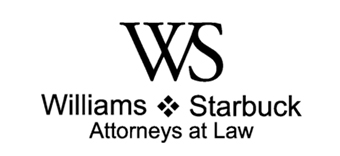How to Stop Mail for a Deceased Loved One: 4 Simple Steps
When a loved one passes away, managing their affairs can be overwhelming, and stopping mail addressed to a deceased loved one is one of the many unexpected tasks you may face. Handling a deceased person’s mail is a critical step in closing their estate. From ensuring bills and important notices are received to stopping unwanted junk mail, following the right process makes this responsibility more manageable and efficient. Ready to take the first step?
Here’s how to manage mail for a deceased loved one in four straightforward steps.
- Notify the Post Office
The first step is to contact the deceased’s local post office and set up mail forwarding to your address. As the person responsible for handling their estate, you’ll need to monitor their mail to ensure you receive important documents like bills, bank statements, or refunds.
To notify the post office:
- Visit your local post office in person.
- Provide proof of your authority, such as a probate order or trustee certification (a death certificate alone is insufficient).
- Complete a change-of-address request on behalf of the deceased.
Mail forwarding is usually valid for up to one year, so it’s a helpful way to stay on top of necessary tasks while avoiding delays.
2. Reduce Junk Mail
Dealing with catalogs, advertisements, and other unsolicited mail can feel like a waste of time. Luckily, there’s an easy way to stop junk mail from arriving. Register your loved one on the Deceased Do Not Contact (DDNC) list through DMAchoice.org.
Here’s how:
- Visit the DDNC registration page.
- Enter the deceased’s information.
- Pay the $1 authentication fee.
This simple step can significantly reduce unwanted mail within three months, making your job a little easier.
3. Cancel Subscriptions and Notify Charities
If your loved one subscribed to magazines, services, or donated to charities, those organizations may continue to send mail unless notified. To stop these:
- Contact the company directly and inform them of your loved one’s passing.
- Provide documentation if requested.
Some organizations may even issue refunds for unused subscriptions, which can be returned to the estate. Taking this extra step ensures their affairs are tidied up and simplifies your workload.
4. Use “Return to Sender”
For any remaining mail that doesn’t require your attention:
- Write “Deceased, Return to Sender” on the envelope.
- Place it back in your mailbox for pickup.
This notifies senders that the recipient is no longer available and can prevent further correspondence.
Why This Matters for Estate Planning
Managing mail may seem like a minor detail, but it’s an important part of wrapping up a loved one’s affairs. As the executor or trustee, staying organized helps you fulfill your responsibilities efficiently and avoid complications down the road.
It’s also crucial to handle mail legally. Opening or reading someone else’s mail is a federal offense unless you are their legal representative. If you’re unsure how to handle specific correspondence, consult your local post office for guidance.
Planning ahead can make this process easier for your own loved ones. Thoughtful estate planning—including selecting decision-makers, creating wills or trusts, and organizing financial information—provides your family with a clear path during difficult times.
Let Us Help
At Williams Starbuck, we understand that managing a loved one’s estate is more than just a legal responsibility—it’s a way to honor their legacy. Our team specializes in guiding families through every step of estate administration, from practical tasks like mail management to complex legal considerations.
Ready to plan for your family’s future or need help with a loved one’s estate? Contact us today. We’re here to make the process easier, so you can focus on what matters most.

